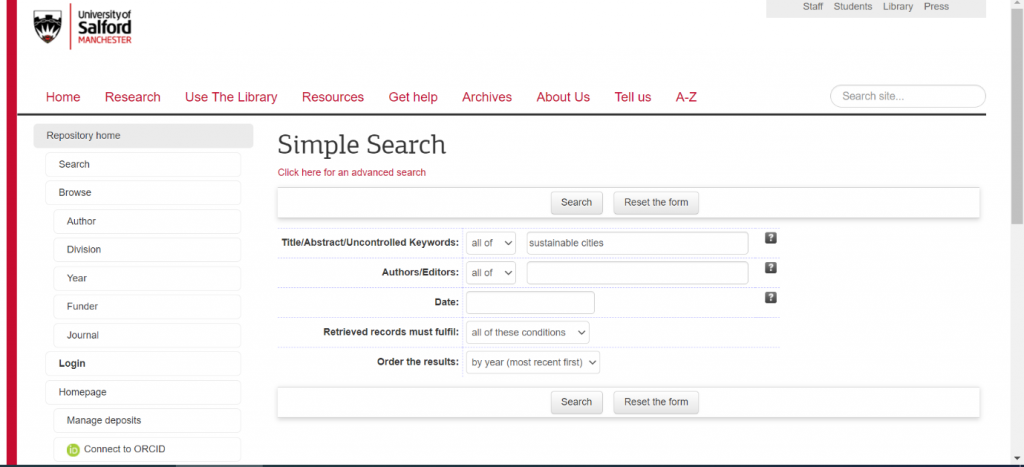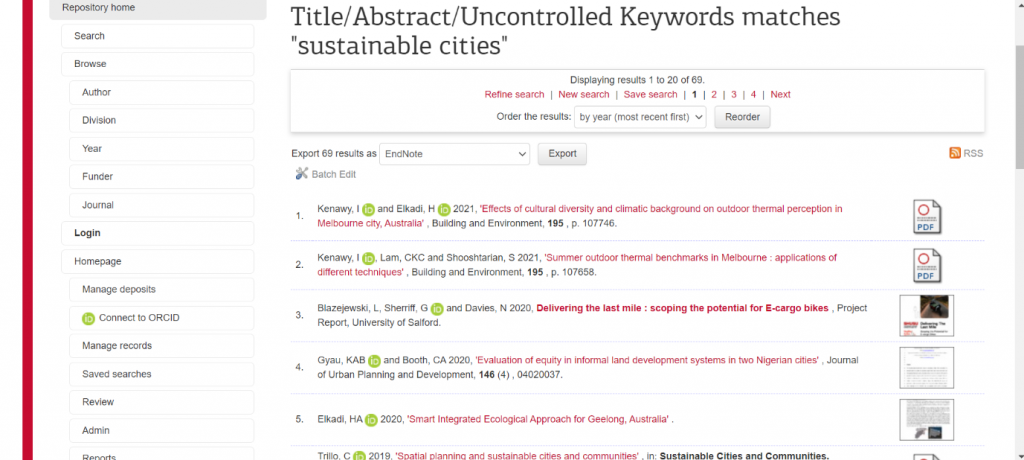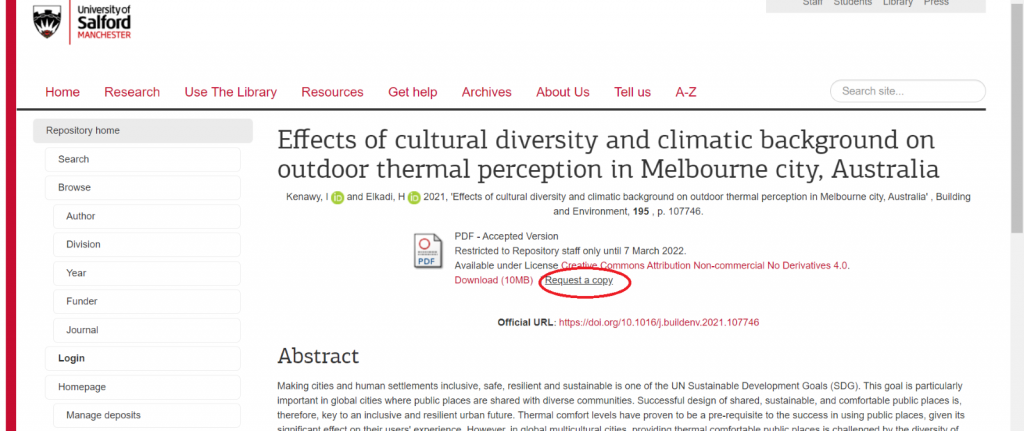You might have spotted the acronym before, but are you aware of the wealth of information contained in USIR? Join The Library’s Metadata and Licensing Administrator, Andrew Marsden, as he uncovers a world of research…
Did you know that the University of Salford has an Institutional Repository? Well, we do, and it’s rather snappily called USIR (University of Salford Institutional Repository). It’s one of 258 Institutional Repositories which are available in the UK1. But what is an Institutional Repository?
It’s basically a collection of scholarly and research outputs produced by staff and postgraduate researchers (who are undertaking intense research projects) at a university or a research institution. If your lecturer has had an article published recently, then they should have deposited a record for it in USIR. If they haven’t, then we’ll be asking that they do!
Sharing research
“Ok, that’s nice for my lecturer,” you’re (probably) thinking now, “but how is USIR going to be of use to my studies?” Well, I’m glad you asked. Institutional Repositories not only act as a collection of research outputs but they play a role in helping to get that research out into the wider world via Open Access. Basically, Open Access is research that’s made available free of cost. When it comes to Open Access in academic publishing, there are two main routes:
- Gold Open Access: where an article or book chapter is published as open access (so not behind a paywall or library subscription) after a fee is usually paid.
- Green Open Access: where an earlier version of the article or chapter manuscript (usually the Accepted Manuscript- this is the version accepted for publication after the output has undergone changes and improvements recommended by fellow academics in what is called the peer-review process) is deposited into a repository and then made openly accessible through that site (often after a publisher decreed embargo has passed). No fee is required for this route.
Content in a click!
“Yes, that sounds very impressive but how is that of use to me?” I hear you say (well, not literally. My hearing’s not that good). It basically means that if you are searching for an article written by a lecturer here at Salford, for example, that has been published in a journal that we don’t have a subscription to, then you could find the article’s record in USIR and read the version we have stored in there for free. The content shouldn’t be any different from the published version. The manuscript is the one which the publisher deemed good enough to publish.
The Library Access browser extension would be helpful in a situation like this. It would direct you to the version of the paywalled article in USIR (or any other open access Institutional Repository). You’ll be able to access the article content with just a click!
Expanding your sources
USIR also has a collection of PhD and other research degrees (MPhil, MRes, MSc by research, etc.) theses, many of which are available to read for free. Postgraduate Researchers (PGRs) are required to upload an electronic copy of their thesis as part of the submission process to complete their degrees.
Thesis data from USIR is harvested into the British Library’s EthOS database. And, more recently, into ProQuest’s Dissertation and Theses Database to help enhance the discoverability of the research our PGRs undertake. If you’re writing an essay for an assignment and want to engage with research outside of articles or books, then searching for a thesis in USIR related to your topic would be an excellent place to begin.
As well as articles and theses, USIR also holds copies of reports, learning resources, written evidence submitted to Parliamentary Committees. There are even photos of artworks and details of exhibitions and performances, and many other different types of research output.
Exploring USIR
So, how do you find this wonderful content? Head on over to the USIR homepage (or click on Database Search in Library Search and find it there, under ‘U’ on the A-Z search). Click on ‘Search’ and enter the subject you are interested in. Click ‘Search’ and then any relevant content in USIR will be listed on the results page.


Be aware that for copyright reasons, some content may be restricted and you won’t be able to access it. But in the majority of these cases, there will be the option to ‘Request a copy’ of the content.

Most of the material in USIR, however, will be available for you to read, including the most downloaded item in the repository: a Professional Doctorate (DProf) thesis called Nursing observation and assessment of patients in the acute medical unit. It’s been downloaded a very impressive 86,571 times!
Feel free to see what is on USIR which may be of use to your studies. If you have any trouble or further questions then just drop us a line at library-research@salford.ac.uk and we’ll be happy to help!
If you want to find out more about The Library’s resources, check out our Library Champions and Financial Times blog posts.

